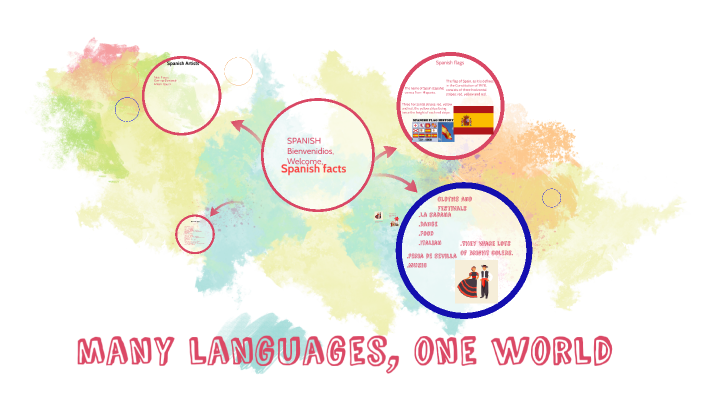The Bahá’í teachings advocate for the unity of humanity, positing that the establishment of a singular global language could significantly foster the interconnectedness essential for peace and cooperation among diverse cultures. The notion of “One World, One Language” emerges as both a visionary ideal and a retrospective examination of the importance of linguistic diversity. In contemplating how many languages we truly require, we delve into historical, sociological, and philosophical perspectives that enrich our understanding of language’s role in human society.
At the very core of Bahá’í teachings is the premise of oneness. This principle not only encompasses the unity of the human race but extends to cultural expressions, including language. While a universal language is envisaged to facilitate communication and understanding, the reality remains that linguistic diversity has its advantages. Thus, the inquiry begins by distinguishing between the aspirations of a singular world language and the inherent value of multiple languages.
Firstly, it is essential to consider the historical context of language development. Throughout human history, languages have evolved as reflections of cultural identity, societal structures, and environmental influences. The emergence of numerous languages can be attributed to geographical separation, migration patterns, and the adaptive nature of human communication. This rich tapestry of languages embodies the various narratives and experiences that shape collective human history. The preservation of these languages is vital, as they carry unique philosophies and worldviews that contribute to the global discourse.
Moreover, the concept of linguistic imperialism raises pertinent questions about the promotion of a universal language. Historically, the dominance of a single language can lead to cultural erosion and the marginalization of minority languages. A profound understanding of this issue necessitates an exploration of sociolinguistics, which examines how language intersects with social power dynamics. The imposition of a dominant language often correlates with historical injustices, and the Bahá’í perspective urges a more equitable approach to language promotion, one that respects and celebrates linguistic diversity.
In envisioning a future where a universal language might exist, one must consider the implications on education and accessibility. A common language could potentially enhance mutual understanding in international dialogue, thereby facilitating collaborations that address global challenges such as climate change, poverty, and conflict resolution. However, the transition towards a singular language must not overshadow the importance of cultural and linguistic heritage. Educational frameworks should, therefore, strive for a dual approach: instilling proficiency in a universal language while concurrently upholding the mother tongues of diverse communities.
Communities can thrive when linguistic plurality is valued, as it allows for the preservation of traditional knowledge and practices. This characteristic is particularly evident among Indigenous languages, which often encompass environmental knowledge and cultural customs. Consequently, the pedagogical methods implemented should encompass multilingual approaches, fostering interactive environments where students can draw upon their linguistic backgrounds as crucial components of their educational experience.
The interplay between technology and language also warrants consideration. In an increasingly digital world, advancements in machine translation and artificial intelligence present opportunities for breaking down linguistic barriers. Such technologies may democratize access to information and knowledge, rendering it possible for speakers of lesser-used languages to participate in global dialogues. As a result, the proliferation of technology could theoretically reduce the necessity for a singular global language while simultaneously emphasizing the importance of multilingualism.
The role of globalization cannot be overlooked in this discussion. The interdependence of nations through trade, diplomacy, and cultural exchange has accelerated the need for effective communication. Within this context, English has emerged as a global lingua franca, facilitating international relations and commerce. Yet, the prevalence of English tends to overshadow the vitality of regional languages, giving rise to fears of linguistic homogenization. It is crucial for Bahá’í followers to promote balanced linguistic practices that advocate for both global communication and local expression.
Furthermore, navigating through the philosophical dimensions of language, we must confront the notion that language shapes thought. The Sapir-Whorf hypothesis suggests that the structure of a language influences its speakers’ worldview and cognition. From a Bahá’í perspective, the implication is profound: a singular language, while beneficial for communication, may inadvertently narrow the cognitive landscape of human experience. Thus, it becomes imperative to nurture diverse linguistic expressions to enrich and expand collective consciousness.
Ultimately, the question of how many languages we truly need is reflective of our commitment to a globally unified society while honoring individual cultural identities. The Bahá’í teachings illuminate pathways toward achieving this balance, urging adherents to embrace both a universal language and the multiple languages that reflect the richness of human experience. Fostering an environment where all languages are cherished as vessels of culture and knowledge is not only a lofty goal; it is a necessary component of advancing global unity.
In conclusion, as we navigate toward a more interconnected world, the discussion surrounding language—its role, importance, and implications—becomes ever more significant. While the idea of “One World, One Language” serves as a noble aspiration for effective global communication, embracing linguistic diversity enriches our shared humanity. By cultivating understanding and respect for various languages, we take essential steps toward realizing the Bahá’í ideal of a unified world where each voice contributes to the collective symphony of human existence.
